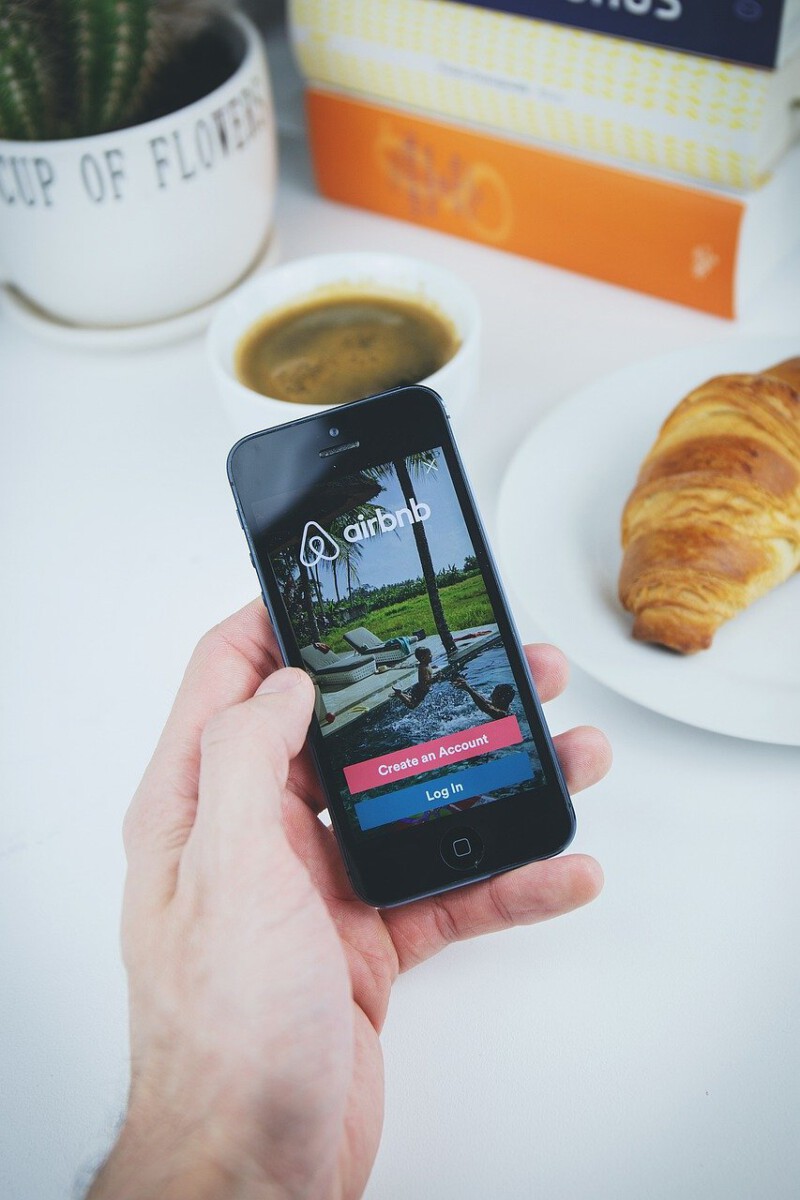The Golden State’s Morning Magic

When you think about morning rituals, you might picture meditation or a perfect cup of coffee. But in Fremont, California – America’s happiest city with nearly 80% of households earning above $75,000 – mornings start differently. Residents wake up with the highest life satisfaction rates in the country and the fifth-lowest depression rate, creating a unique atmosphere where mornings feel less rushed and more intentional. The city boasts the lowest divorce and separation rates in America at just 8.9%, meaning many families start their days together in stable, supportive households. Fremont ranks sixth among the most caring cities in America, which translates into neighbors greeting each other during morning walks and small acts of kindness that set a positive tone for the entire day.
Silicon Valley Sunrises and Life Balance

San Jose, California, claims the second spot as America’s happiest city, partly because it has the longest average life expectancy in the country. This longevity factor influences how residents approach their mornings – there’s less urgency and more mindfulness about health and wellbeing. The city scores exceptionally well on Sharecare’s Community Well-Being Index, which measures how much residents like where they live, feel safe and have pride in their community. Residents get plenty of physical activity and have particularly high rates of health insurance coverage, suggesting morning exercise routines are deeply embedded in the local culture. San Jose also excels on Sharecare’s Life-Satisfaction Index, measuring health risks based on physical, financial and social factors, indicating that mornings here aren’t just about rushing to work but about maintaining overall life balance.
The Physical Activity Revolution

Irvine, California, the third-happiest city, stands out because more than 88% of adults report having good or better health – a statistic that doesn’t happen by accident. Nearly 84% of Irvine residents participate in physical activities, suggesting that morning workouts aren’t just popular but practically universal. Research has shown that morning routines can reduce stress and boost energy levels, and Irvine seems to have mastered this formula. The city has the seventh-highest life expectancy for residents, indicating that these morning fitness habits are paying long-term dividends. Irvine has the third-lowest percentage of adults who report having 14 or more mentally unhealthy days per month, showing how physical morning routines directly impact mental health throughout the month.
The Arlington Achievement Model

Arlington, Virginia ranks as the happiest large U.S. city according to SmartAsset’s study, ranking within the top 10 for many happiness metrics. Residents have the longest life expectancy at 85.3 years and get plenty of physical activity, suggesting morning routines that prioritize health and longevity. An estimated 62.8% of individuals have over $100,000 in income, and the city has the second-lowest rate of poverty at 6.5%, providing residents with the financial stability to invest in morning wellness routines rather than stress about survival. The high life expectancy indicates that whatever morning habits Arlington residents practice, they’re working remarkably well. These aren’t just wealthy people being happy – they’re people who’ve figured out how to structure their mornings for maximum long-term benefit.
The Coffee Culture Connection

For 43% of Americans, drinking coffee is the most important part of their morning routine, but in the happiest cities, coffee culture goes deeper than caffeine consumption. One study showed that people who are consistent with morning habits earn roughly $12,500 more per year on average than those who don’t stick to a morning routine, suggesting that the simple act of having coffee at the same time each day creates structure that leads to success. Scientists and CEOs alike have extolled the benefits of establishing an early morning ritual for decades, and the happiest cities seem to have communities where this wisdom is widely practiced. In these towns, morning coffee isn’t just fuel – it’s a mindful moment that sets the intention for a productive, satisfying day.
The Caring Community Effect

Fremont ranks sixth among the most caring cities in America, and when people care for each other, they boost each other’s happiness. This caring manifests in morning rituals that go beyond individual habits. Neighbors check on elderly residents during morning walks, parents coordinate school drop-offs to help single parents, and local businesses create morning gathering spaces that foster community connection. Research shows that happiness key ingredients include a positive mental state, healthy body, strong social connections, job satisfaction and financial well-being. The happiest cities have figured out how to weave social connections into daily morning routines, making breakfast meetings, walking groups, and community gardens integral parts of starting the day right.
The Financial Freedom Formula

Studies have shown that increasing your income up to $75,000 also increases your happiness, but making more than that does not. This research finding explains why America’s happiest cities have mastered morning routines around financial wellbeing rather than just wealth accumulation. Cities where a lot of people make at least $75,000 per year are more likely to have maximized their happiness, and this financial stability allows residents to focus morning time on wellness, relationships, and personal growth rather than economic anxiety. Research shows that having more money only increases your happiness until you’re making at least $75,000 per year – anything more you earn likely won’t have an impact. This knowledge seems to free residents in the happiest cities to design morning routines around life satisfaction rather than endless productivity and earning.
The Mental Health Foundation

Fremont residents have the lowest number of adults who say they experience 14 or more mentally unhealthy days per month, a statistic that suggests morning mental health practices are remarkably effective. Irvine has the third-lowest percentage of adults who report having 14 or more mentally unhealthy days per month and the eighth-lowest depression rate. Morning routines can lower stress levels by minimizing overwhelm and develop healthier habits by making time for things like breakfast or exercise. The happiest cities seem to have residents who prioritize mental health in their morning routines, whether through meditation, journaling, exercise, or simply creating calm, unrushed morning environments. Past research has shown that a consistent morning routine can reduce stress, boost energy levels and improve productivity at work.
The Longevity Lifestyle

San Jose has the longest average life expectancy in the country, allowing people to enjoy their lives into old age. This isn’t just good genetics – it’s the result of morning habits that compound over decades. Irvine has the seventh-highest life expectancy for residents, while Arlington residents have life expectancy at 85.3 years. These numbers suggest that morning routines in America’s happiest cities aren’t just about feeling good today, but about building habits that sustain wellbeing across an entire lifetime. Think of it like compound interest for your health – small, consistent morning investments in physical activity, mental health, and social connection pay massive dividends over 50+ years. The residents of these cities seem to understand this intuitively, treating their morning hours as sacred time for long-term life investment.
The Exercise Revolution

32% of Americans consider exercise the second most important part of their morning routine, followed by taking a shower at 26%. But in the happiest cities, these percentages are much higher. Nearly 84% of Irvine residents participate in physical activities, suggesting that morning exercise isn’t just popular but practically universal. In Plano, Texas (ranked 17th happiest), locals can stay happy and healthy when a majority live within a 10-minute walk from one of the city’s many well-kept parks. Morning routines help people feel more prepared for their day with a positive mindset and better focus, while increasing motivation by starting the day with small accomplishments. The happiest cities have created infrastructure and culture that makes morning exercise not just possible but inevitable – turning healthy habits into community-wide lifestyle choices.
The Relationship Stability Secret

San Jose has the fourth-lowest separation and divorce rate, so happy couples can spend their lives together into their golden years. Fremont has the lowest divorce and separation rates in the country at just 8.9%, while Irvine has the third-lowest separation and divorce rate in the nation. These statistics aren’t accidents – they reflect morning routines that prioritize relationships. In the happiest cities, couples seem to start their days together more often, whether through shared exercise, breakfast conversations, or simply coordinated schedules that reduce relationship stress. Morning routines can increase work performance with improved focus and a more positive attitude, leading to better work-life balance, while instilling discipline through consistent daily routines. When both partners in a relationship have solid morning routines, it creates stability that strengthens the entire household.
The Community Infrastructure Advantage

San Jose has one of the best scores on Sharecare’s Community Well-Being Index, which measures how much residents like where they live, feel safe and have pride in their community. This isn’t just about having nice amenities – it’s about creating an environment where healthy morning routines feel natural and supported. In Plano, locals can stay happy and healthy when a majority live within a 10-minute walk from one of the city’s many well-kept parks. The happiest cities have invested in infrastructure that makes morning wellness routines accessible: safe walking paths, well-maintained parks, community centers with early hours, and neighborhoods designed for human connection rather than just car traffic. New York City is home to Central Park, which covers 51 Manhattan city blocks and is 843 acres, providing space for morning activities even in dense urban environments.
Morning routines aren’t just personal habits – they’re community investments that pay dividends in happiness, health, and human connection. What would your mornings look like if your entire neighborhood was designed around wellbeing rather than just efficiency?






